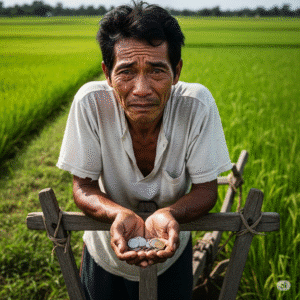 The Philippines, a nation renowned for its vibrant culture and delicious cuisine, faces a stark reality: a looming rice crisis threatening its food security. A new policy paper from the Integrated Rural Development Foundation (IRDF), highlighted by Business Mirror, a disturbing truth: the country’s rice bowl is emptying, and the reasons are complex and deeply concerning.
The Philippines, a nation renowned for its vibrant culture and delicious cuisine, faces a stark reality: a looming rice crisis threatening its food security. A new policy paper from the Integrated Rural Development Foundation (IRDF), highlighted by Business Mirror, a disturbing truth: the country’s rice bowl is emptying, and the reasons are complex and deeply concerning.
Read https://businessmirror.com.ph/2025/06/16/land-conversion-will-widen-phl-rice-deficit/?
Forget idyllic rice paddies; the reality is far grimmer. Vast swathes of prime farmland, once teeming with life-giving grains, are disappearing at an alarming rate, sacrificed to the relentless march of urbanization and commercial development. This isn’t just about lost landscapes; it’s about lost livelihoods and a future where Filipinos may struggle to put food on their tables. Outdated laws and a lack of effective land-use planning are fueling this devastating trend, leaving the nation vulnerable to food insecurity.
But land conversion is only half the story. Philippine rice yields lag far behind its neighbors, a stark indicator of systemic inefficiencies. Farmers struggle with inadequate government support, limited access to high-quality seeds and fertilizers, and a desperate need for modern irrigation and farming equipment. It’s a recipe for low productivity and a nation increasingly reliant on costly imports.
And the demand keeps climbing. A burgeoning population and changing dietary habits mean Filipinos are consuming more rice than ever before. This surge in demand, coupled with dwindling domestic production, paints a picture of a nation teetering on the brink of a food crisis. Outdated data and inaccurate forecasting only exacerbate the problem, hindering effective policy responses.
Even the introduction of Golden Rice, intended to combat Vitamin A deficiency, casts a shadow of uncertainty. Early research suggests potential negative impacts on yield and pest resistance, raising serious questions about its long-term viability.
But hope remains. The IRDF’s policy paper offers a lifeline, proposing bold solutions. A guaranteed floor price for palay (unmilled rice) would empower farmers, giving them the financial stability to invest in their land and resist the pressure to sell. Increased buying capacity by the National Food Authority (NFA) at fair prices would provide crucial market support. And critically, the urgent passage of the Rice Industry Sustainable Development Act and enforcement of existing land-use laws are essential to protect precious farmland and promote sustainable farming practices.
The Philippines’ heavy reliance on rice imports, hitting record highs in recent years, underscores the urgency of these reforms. The future of Filipino food security hangs in the balance. The question isn’t just whether the Philippines can feed itself; it’s whether it will choose to.
#JusticetoFilipinoFarmers #FoodSecurityFirst
f


